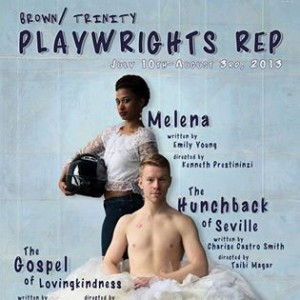 Charise Castro Smith’s Seville is an old-fashioned farce with a serious underbelly. It gets in its share of chuckles and guffaws from the audience, but the real thrust comes through later, during the quiet unassuming moments.
Charise Castro Smith’s Seville is an old-fashioned farce with a serious underbelly. It gets in its share of chuckles and guffaws from the audience, but the real thrust comes through later, during the quiet unassuming moments.
With the framework of Victor Hugo’s Hunchback of Notre Dame to hang her characters on, Castro Smith introduces us to Maxima Segunda Terrible, a quirky Eleanor Roosevelt-like hunchback with an affinity for books and a streak of atheism.
That she’s an atheist during the Spanish Inquisition would give the church reason enough to keep her locked away in the tower, but Maxima isn’t imprisoned there. Rather, she is free to roam the castle, but prefers to stay inside lest someone from the Royal Court bother her for an opinion on the pressing issue of who should advise the princess.
Maxima would rather have them consider the question of why, if they are Godly people, do they let the Amerindians be slaughtered mercilessly, just because they’re different. Many campy but fun answers ensue from this. At one point, Queen Isabella hovers above her throne like a puppet and bellows in the voice of God!
Though it has its share of well-earned laughs, more than a few felt dangerously close to pandering where there was nothing more to the characters’ exchange than a well-timed swear word. Ditto for the constant use of modern catch phrases to elicit a laugh. Despite this, Seville remains engaging for the questions it poses about why humanity’s first response to people who aren’t like us is to kill them.